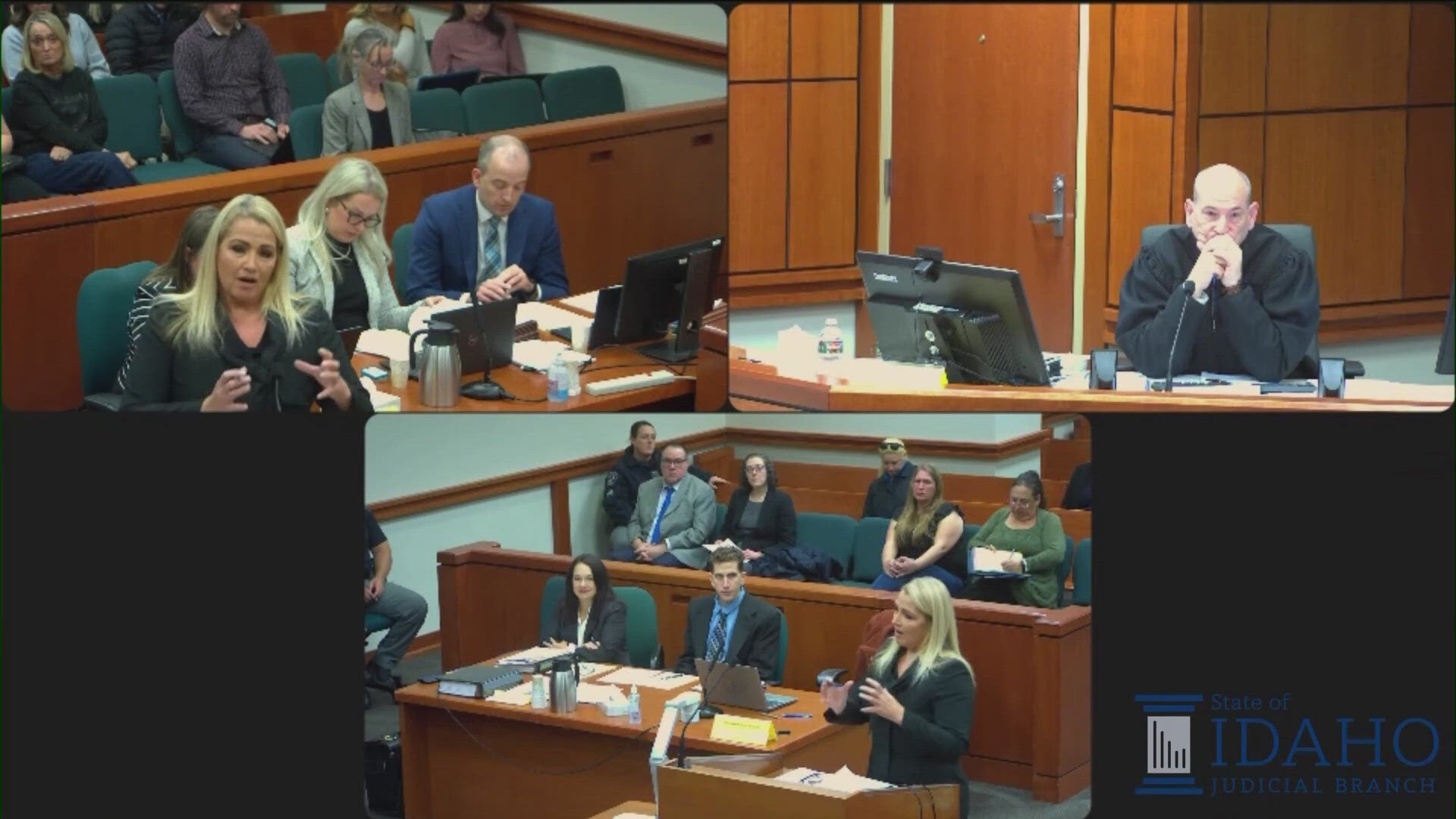BOISE, Idaho — The Idaho Supreme Court is expected to decide next year whether prison officials must reveal the past source of their execution drugs. Similar debates are raging in courthouses and statehouses across the United States, but it's not yet clear if rulings elsewhere — including a recent 9th U.S. Circuit Court of Appeals decision that said there is no First Amendment right to the information — will impact the Idaho fight.
Idaho Department of Correction spokesman Jeff Ray said in a statement that prison officials haven't yet discussed the 9th U.S. Circuit ruling with the department's attorneys, and so they haven't yet formed an opinion on whether the ruling will help their appeal.
ACLU attorney Molly Kafka says she doesn't think the federal appellate court ruling will negatively impact University of Idaho professor Aliza Cover's case.
Cover, who is represented by the ALCU, sued the Idaho Department of Corrections after the department largely denied her public record request in 2017. Cover, who studies how the public interacts with the death penalty, was seeking documents about the lethal injection drugs used in the state's two most recent executions.
Earlier this year a state judge said prison officials had to turn over much of the information, including documents that would show the supplier of the drugs used in its last execution seven years ago. The case is now under appeal to the Idaho Supreme Court, and the high court is expected to release a scheduling order for the appeal sometime next month.
On Tuesday, however, the 9th U.S. Circuit Court of Appeals issued a ruling on a similar case out of Arizona.
In that case seven inmates and a First Amendment Coalition argued that journalists should be allowed to hear as well as see what happens in an execution chamber, and that prison officials should be required under the First Amendment to divulge other information about executions, including the source of lethal injection drugs.
The federal appellate court agreed that journalists should be able to hear and see executions, but said there is no First Amendment right to some other execution-related information.
"Of course it's not great to see this opinion come out, but in terms of how it applies to Professor Cover's case, it doesn't address it," ACLU attorney Molly Kafka said. "That case was brought on First Amendment claims, and we're focused specifically on Idaho's Public Records Act and the balancing requirement Idaho's law requires."
In other words, though the federal appellate court said there's not a general First Amendment right to the information, the ACLU believes it's still releasable under Idaho's public records law. Prison officials were required to weigh the benefit of releasing the information to the public against the any potential harm that would be caused by its release, and the ACLU maintains that was never done.
Case law surrounding execution secrecy is continually evolving, as courthouses and statehouses across the nation grapple with the issue. A split Arkansas Supreme Court earlier this year upheld a law that keeps secret information about execution drug makers and sellers, and a Texas Supreme Court said disclosing the source of lethal-injection drugs used in previous executions would put employees of a compounding pharmacy at risk of "physical harm."



